List Of All Nigerian Presidents From 1960 till date – 2023
Since the northern and southern protectorates were amalgamated in 1914 by the British, Nigeria had only one president from 1914 when it was created to 1960 and that was the Queen of England. After independence in 1960, Nigerian indigenous presidents started controlling the affair of the country. And in 1963, Nigeria became a republic. Nigeria attained its independence in the year 1960 and ever since then has had a number of presidents and heads of state.
The list of presidents in Nigeria is as follows:
1. Dr Nnamdi Azikiwe
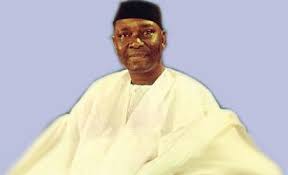
Dr Nnamdi Azikiwe (October 1, 1960 – October 1, 1963)
Born on November 19, 1904, to Igbo parents in Zungeru in present-day Niger State, Dr Nnamdi Azikwe, was the first and only indigenous Governor-General of Nigeria. He became the ceremonial president from October 1 1960 through October 1 1963 when Nigeria became a Republic.
2. General Johnson Aguiyi-Ironsi
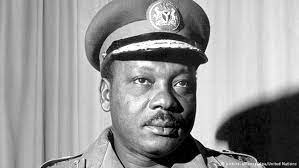
General Johnson Aguiyi-Ironsi (16 January 1966 – 29 July 1966)
Johnson Thomas Umunnakwe Aguiyi-Ironsi was the first Military Head of State in Nigeria. He was born in Abia State, Nigeria but he grew up with his sister at Kano before joining the Nigerian Regimen at the age of 18. Aguiyi-Ironsi is popularly known as the leader that brought the unitary system of government into Nigeria. However, that system of government did not last for long.
Due to the fact that most northerners didn’t like his administration, he was assassinated on the 29th of July, 1966. This brought in the government of Yakubu Gowon in 1966.
3. General Yakubu Gowon
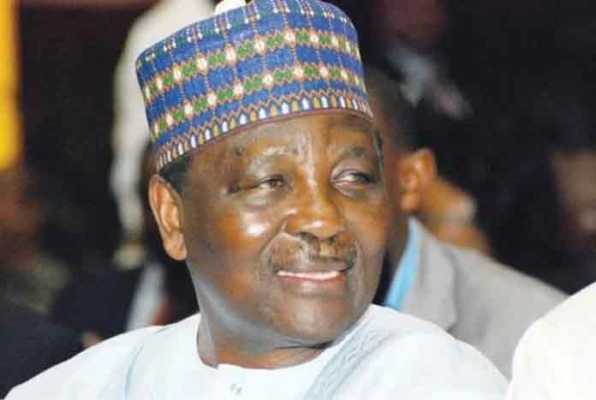
General Yakubu Gowon (1 August 1966 to 29 July 1975)
He was Nigeria’s youngest military chief of staff at the age of 31. Yakubu (also called Jack) is known for leading Nigeria during the Civil War.
History has it that Gowon was a strong, smart and educated leader. He was born in Plateau State as the fifth of eleven children with his parents. While he was growing up, he was the best amongst his peers when it comes to athletics. In 1966, Gowon was chosen to become head of state for Nigeria. His government created the first 12 states in the history of Nigeria.
4. General Murtala Mohammed
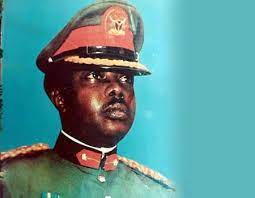
General Murtala Mohammed (29 July 1975 to 13 February 1976)
General Murtala Mohammed didn’t stay long in power because he was assassinated. He became the 4th Head of State of Nigeria in 1975 and was killed in 1976 by some members of Dimka’s abortive coup.
Immediately after his death, Obasanjo Olusegun took over power and completed his plan to hand over power to a civilian government. Aside from that, Obasanjo also carried out many reforms in the country in fulfilment of General Murtala Mohammed’s goal for the country.
5. General Obasanjo Olusegun
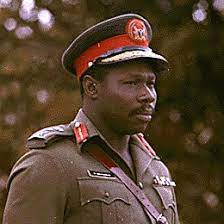
General Obasanjo Olusegun (13 February 1976 to 1 October 1979)
General Obasanjo Olusegun is one of the past governors-general of Nigeria that really contributed to the growth and development of the country. He was also called Baba Africa and was active during the Congo Crisis and the Nigerian Civil War.
Obasanjo joined the Nigerian Army in 1958. His leadership is seen as one of the most successful in the history of Nigeria. In fact, the majority of the achievements of the military in Nigeria were under his government.
6. Shehu Shagari
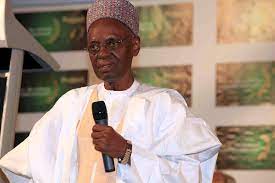
President Shehu Shagari (1 October 1979 to 31 December 1983)
Shehu Usman Aliyu Shagari was the first elected president of the federal republic of Nigeria. After the power tussle and military coup that followed Azikiwe’s regime, Shehu Usman Aliyu Shagari emerged as the first democratically elected president of the country. His vice president was Alex Ekwueme.
Research shows that Shehu Usman Shagari joined politics in 1951. He was one of the respected personalities in NPN (National Party of Nigeria). Even before he was elected president of Nigeria, he was actively participating in the development of Nigeria.
7. Gen Muhammad Buhari
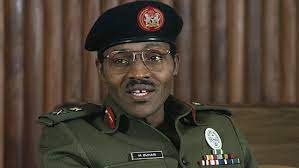
General Muhammadu Buhari (31 December 1983 to 27 August 1985)
Muhammadu Buhari is the current president of Nigeria and a one-time military head of state in Nigeria (1983 to 1985). He was born in 1942 into a Fulani family. At his young age (19), Buhari was already a student at the Nigerian Military Training College (NMTC).
At 20 years he was given the title of second lieutenant and appointed Platoon Commander of the Second Infantry Battalion in Abeokuta. Buhari was a crime fighter during his government. He hated corruption and tried everything possible to curb the problem.
8. Gen Ibrahim Babangida
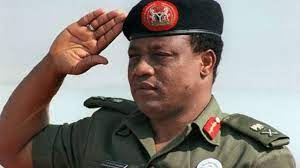
General Ibrahim Babangida (27 August 1985 to 26 August 1993)
General Ibrahim Babangida is also known as IBB. He was an exceptional leader of Nigeria and one of the best military presidents Nigeria has had. Babangida removed Muhammadu Buhari during his military government and ruled until 1993 when he resigned.
It will surprise you to know that Ibrahim Babangida was born on 17 August 1941. He grew up with his parents until he officially joined the Nigerian Army on 10 December 1962. During military rule in Nigeria, Babangida was seen as the key plotter of military coups.
9.Ernest Shonekan
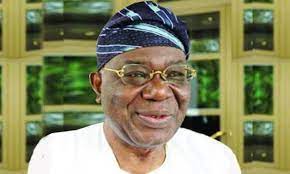
Ernest Shonekan (26 August 1993 to 17 November 1993)
It was Babangida’s military regime that gave birth to this government. As a result of the pressure mounted on him to hand over power to a civilian government, Babangida handed over power to another president.
Apparently, Chief Ernest Adegunle Oladeinde Shonekan was the first lawyer to become the president of Nigeria. Before he was appointed into power, Shonekan was the chief executive of the United African Company of Nigeria PLC, a large Nigerian conglomerate.
Coupled with Chief Ernest Adegunle Oladeinde Shonekan’s regime was Moshood Abiola as the vice president of the country. They two worked together until the military intervened again.
10. Sani Abacha
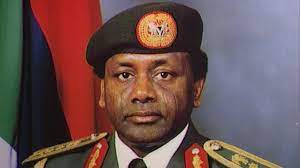
General Sani Abacha (17 November 1993 to 8 June 1998)
Abacha is one of the well-known dictators in the history of Nigeria. He served as the military head of state of the country from 1993 till 1998 when he was killed due to a heart attack. During the Civil War, Abacha was the platoon and battalion Commander. His government was tyrannic in nature.
Abacha’s leadership was unlike every other past leader of Nigeria. His policies and decisions were heavily criticized in Nigeria and other parts of the world. That does not also mean that there were no positive achievements during his leadership.
11.Gen Abdusalami Abubakar
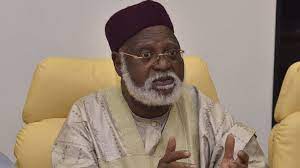
General Abdulsalami Abubakar (8 June 1998 to 29 May 1999)
General Abdulsalami Abubakar is another significant leader in the history of Nigeria. He was very active in the Nigerian Civil War and the 1978 South Lebanon conflict. General Abubakar was born in 1942 by Abubakar Jibrin, a well-known personality in Minna, Niger State, Nigeria.
As a young man, General Abubakar was schooled in Nigeria. He served in the Nigerian Air Force and Army from 1963–1966 and 1966–1999 respectively. Abubakar also served as the de facto President of Nigeria from 1998 to 1999. He succeeded Sani Abacha after his death.
12. Chief Olusegun Obasanjo
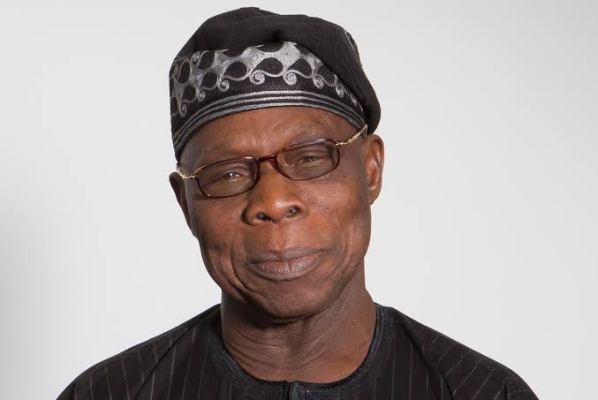
Olusegun Obasanjo (29 May 1999 to 29 May 2007)
Olusegun Mathew Okikiola Aremu Obasanjo is a well known political figure in Nigeria even today. He is popularly called Baba Africa. Obasanjo became the president of Nigeria from 1999 to 2007. His vice at that time was Shehu Musa Yar’Adua.
It will surprise you to know that before and during his regime as president, he was an ardent member of the Peoples Democratic Party (PDP). According to research, President Obasanjo spent most of his first term travelling abroad. He was able to win at least some Western support for strengthening Nigeria’s nascent democracy.
13.Umaru Musa Yar’Adua
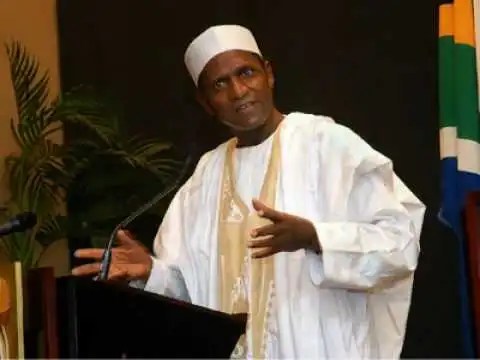
Umaru Musa Yar’Adua (29 May 2007 to 5 May 2010)
Umaru Musa Yar’Adua took over power from Obasanjo after he was declared the winner of the controversial Nigerian presidential election held on 21 April 2007. He was the former governor of Kastina state before becoming the president of the country. It will surprise you to know that Yar’Adua took over from this father who was also an ardent politician. In fact, he (his father) was the National Vice-chairman of the National Party of Nigeria (NPN).
Even before becoming the president of the federal republic of Nigeria, Umaru Musa Yar’Adua has been contributing to the development and growth of the country. He was a member of the 1988 Constituent Assembly.
Even before becoming the president of the federal republic of Nigeria, Umaru Musa Yar’Adua has been contributing to the development and growth of the country. He was a member of the 1988 Constituent Assembly.
Sadly, Umaru Musa Yar’Adua died as a result of a sickness that he travelled outside the country to treat. On returning back to the country (24 February 2010), his vice president, Goodluck Ebele Jonathan took over power as the president of the country.
13. Dr Goodluck Ebele Jonathan
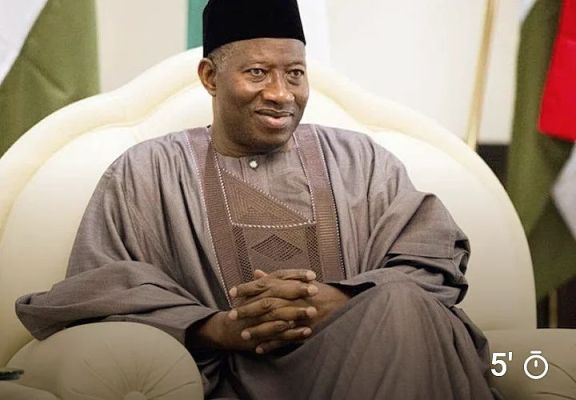
Goodluck Ebele Jonathan (29 May 2010 to 29 May 2015)
Goodluck Ebele Azikiwe Jonathan is a one time governor of Bayelsa state and president of the federal republic of Nigeria. He was the vice president during Umaru Musa Yar’Adua’s regime. After the death of Umaru Musa Yar’Adua, ex-president Goodluck Ebele Azikiwe Jonathan promised to continue implementing the seven-point agenda policy framework of the former president.
During his regime, the country had one of the best leaders in the world. However, due to the incessant security problem, some citizens criticized his government for not being able to handle the problem.
In 2015, president Goodluck Ebele Azikiwe Jonathan lost the 2015 presidential election to Muhammadu Buhari. He pacifically handed over power to the newly elected president and said “Nobody’s ambition is worth the blood of any Nigerian.” Currently, Goodluck Jonathan is the chairperson of the newly inaugurated International Summit Council for Peace (ISCP). He is also known as the ambassador of peace.
14. Muhammad Buhari

President Muhammadu Buhari ( 29 May 2015 to 29 May 2023)
Muhammadu Buhari is the current president of the federal republic of Nigeria. He assumed office in 2015 through the All Progressives Congress (APC), defeating the incumbent President Goodluck Jonathan. To some citizens, President Muhammadu Buhari’s regime is a failed one.
However, some citizens posit that he is doing very well as president of the country. Prof. Yemi Osibajo (a professor of law) is the vice president of this regime. It may interest you to know that President Muhammadu Buhari is a one time Governor of Bornu state (3 February 1976 – 15 March 1976).
Muhammadu Buhari hails from Daura, Katsina State. According to research, he is from a Fulani family and his father died when he was still 4 years old. His government is hell-bent on eliminating corruption in the country.
15. Bola Tinubu 2023 – Present
Chief Bola Ahmed Adekunle Tinubu GCFR, widely recognized for his political prowess, currently holds the esteemed position of President of Nigeria. Prior to this, he served as the Governor of Lagos State from 1999 to 2007, demonstrating his astute leadership skills. Additionally, during the Third Republic, Tinubu represented Lagos West as a senator.
President Bola Ahmed Tinubu
On May 29, 2023, Tinubu officially commenced his presidential term in accordance with the Nigerian constitution. A grand inauguration ceremony is scheduled to take place at 10AM (WAT) at Eagle Square in the Federal Capital Territory. The Chief Justice of Nigeria, Olukayode Ariwoola, will administer the oath of office, solidifying Tinubu’s position as the President of Nigeria. Notably, his election victory has been met with widespread acceptance and international recognition, as his government successfully overcame legal challenges posed by the opposition following the March elections.
Distinguished heads of state and government from various nations have confirmed their attendance at this momentous occasion, further highlighting the significance of Tinubu’s presidency. In recognition of his exceptional contributions, Tinubu was recently bestowed with the prestigious national honor of the Grand Commander of the Order of the Federal Republic. Similarly, his Vice President, Kashim Shettima, received the second highest honor, the Grand Commander of the Order of the Niger, on May 25th, further solidifying their esteemed positions within the Nigerian government.
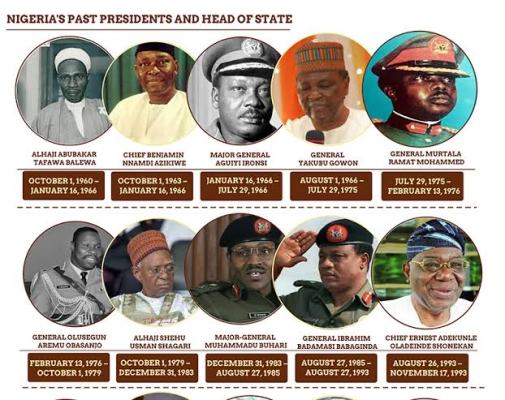

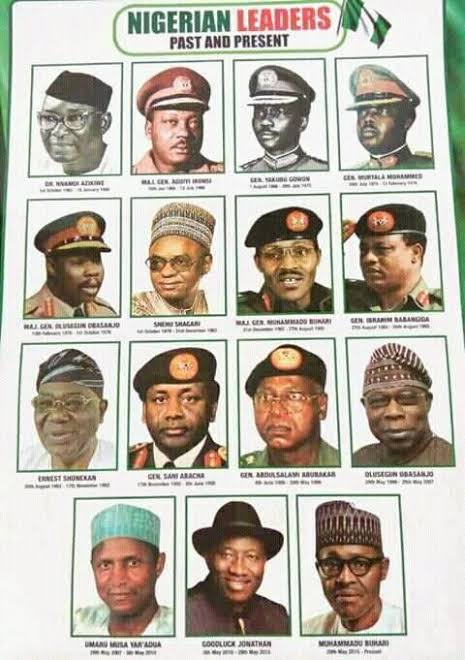
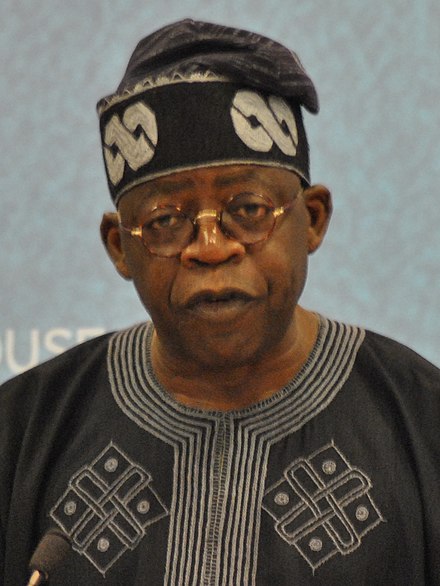
Leave a Reply